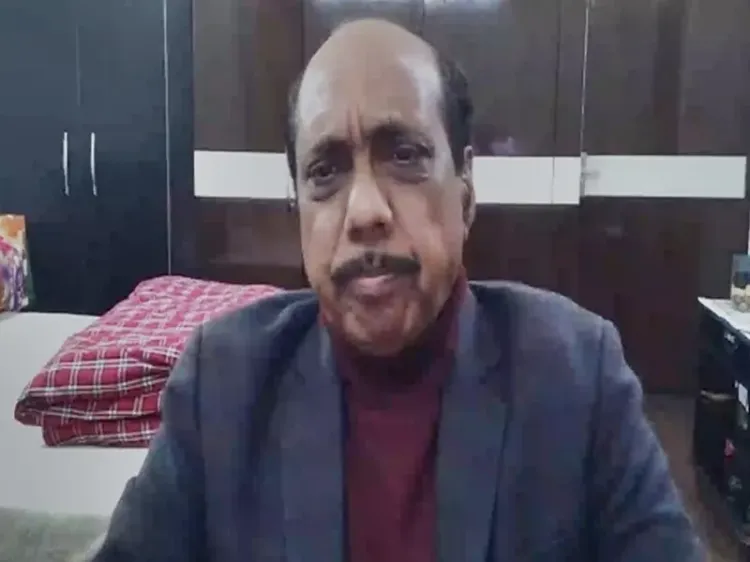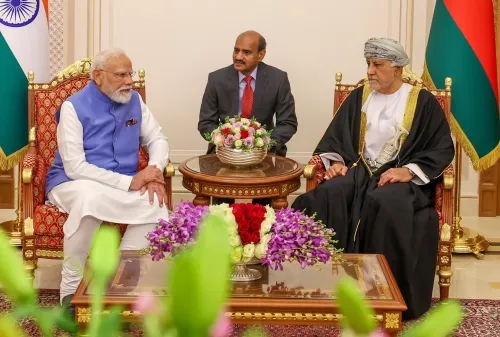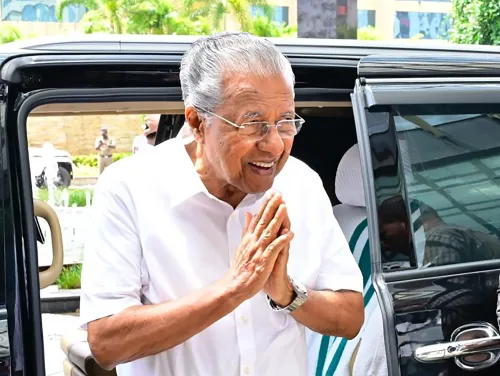Shatrughan Singh: UCC Empowers Women, Abolishes Polygamy and Halala in Muslim Community

Synopsis
Key Takeaways
- UCC implementation in Uttarakhand marks a significant legal milestone.
- It introduces uniformity in personal and family laws for all citizens.
- Special provisions for marriage, divorce, and maintenance are included.
- UCC aims to enhance women's rights within the Muslim community.
- Registration is mandatory for live-in relationships.
New Delhi, Jan 27 (NationPress) The Uniform Civil Code (UCC) has been officially enacted in Uttarakhand as of Monday. This landmark move ensures that the state adopts consistent regulations governing personal and family affairs for all its residents, irrespective of their religious affiliations.
Following this groundbreaking initiative spearheaded by Chief Minister Pushkar Singh Dhami, Shatrughan Singh, the Chairman of the Rules and Implementation Committee, shared insights with IANS.
In the discussion, Singh provided detailed explanations regarding the UCC and responded to several pressing inquiries. He was instrumental in drafting the UCC for Uttarakhand and submitted a comprehensive 400-page document to the state government, which has now been ratified into law.
Commenting on the UCC's launch in Uttarakhand, Shatrughan Singh remarked, "It brings immense joy to see our efforts bear fruit, as Uttarakhand becomes the first state under the Constitution to enforce UCC. While Goa had previously adopted UCC, Uttarakhand stands out for realizing the ambitions set forth in Article 44 of the Constitution.
"This is a momentous achievement, resulting from thorough analysis and discussion. Numerous Supreme Court decisions have advocated for UCC's implementation. Now that it is in effect, those who oppose it must clarify their objections.
When discussing the challenges encountered during UCC's development, he noted, "The journey was complex and delicate, necessitating engagement with diverse communities. Committee members traversed the state, interacting with the populace. Additionally, integrating traditional laws into a cohesive framework demanded extensive effort. This undertaking spanned over three years and has now come to fruition.
In response to whether Uttarakhand's demographic composition simplified the process, he stated, "Uttarakhand's demographics encapsulate the nation's diversity, including Muslim, Christian, Sikh, and other communities. Each region possesses unique traditions, yet the fundamental essence of UCC will remain consistent across states. Uttarakhand's demographic diversity presented challenges, given the coexistence of multiple communities. Nonetheless, the manner in which core issues were addressed here will serve as a model for other states.
Regarding the debates surrounding personal laws within UCC, he clarified, "There were misunderstandings suggesting that personal laws were entirely abolished; that is inaccurate. The draft developed by the committee incorporated specific provisions addressing marriage, divorce, and maintenance, clarifying the judicial role in these matters. However, some amendments were made by the state government.
When queried about the likelihood of other states adopting Uttarakhand's UCC, he replied, "It is hard to predict, but Uttarakhand has established a framework. Other states can draw from it and tailor it to their unique contexts.
Shatrughan Singh further explained, "A penal provision has been instituted for those who disregard the UCC. For instance, if individuals neglect to register a marriage or live-in relationship and fail to comply after receiving a notice, penalties will be imposed. If anyone challenges the UCC legally, the judiciary will determine the outcome.
On the status of UCC in Uttar Pradesh, he remarked, "In Uttar Pradesh, UCC has not been formally enacted like in Uttarakhand. While there might be certain provisions, a completely new law has not been introduced.
Discussing UCC's effects on the Muslim community, he emphasized, "The primary goal of UCC is to safeguard the rights of all communities, particularly women. Within the Muslim community, certain traditional customs, such as polygamy and 'halala', have now been abolished. This represents a progressive advancement for women. Although some men may resist changes to established rights, this law is a step forward.
On provisions for live-in relationships under UCC, he stated, "In Uttarakhand, couples in live-in arrangements will be mandated to register. If they have children, those children will enjoy the same rights as those born to married couples. While marriage is not a legal requirement, registration will be compulsory.
Regarding same-sex marriage, he clarified, "UCC does not include provisions for same-sex marriage. It solely recognizes the union between a man and a woman.
When addressing potential criticism, he noted, "Any transformation invites opposition, particularly concerning religious and cultural matters. While some individuals in the Muslim community may contest it, a significant portion of society endorses women's rights.
When Shatrughan Singh was asked by IANS about his future endeavors, he stated, "I currently serve as the Chairman of the Pay Discrepancy Committee and am involved with a commission focused on policy formulation. When asked if he would assist other states in developing their UCC, he affirmed, "I am prepared to offer guidance if other states request my support in drafting UCC.









